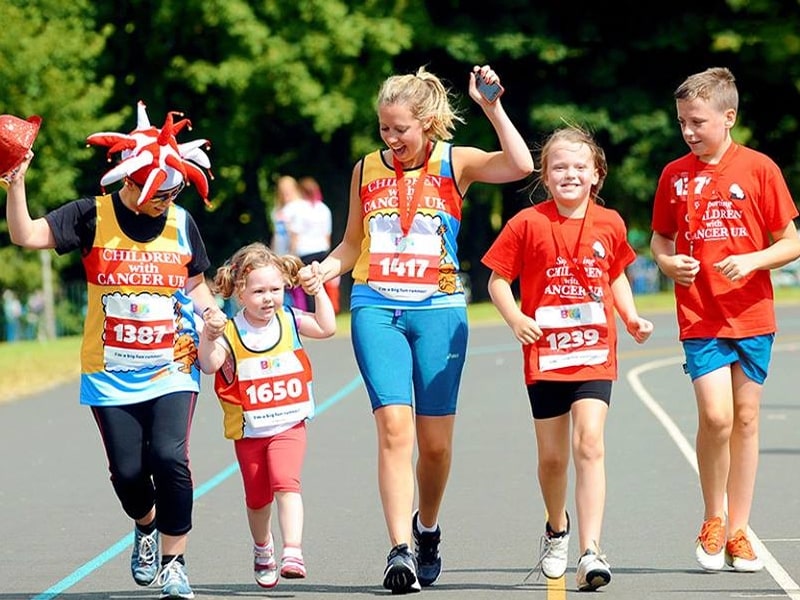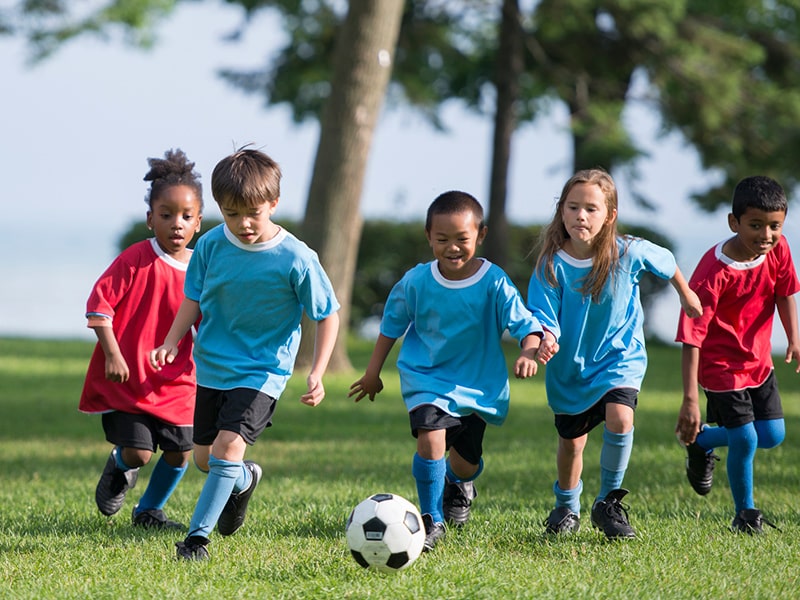Positive attitudes towards sports in children

What can parents do to help their children develop positive attitudes towards sport? A lot, actually. It is in their hands to empower their children to acquire the practice of physical exercise as a pillar of their wellbeing or to end up leaving it and not taking advantage of this healthy habit.
However, parents not only influence this, but also act as role models for their children in competitions. With their comments and behaviour from the stands they can help their children to have positive values in relation to sport and competition or, on the contrary, develop unhealthy competitiveness – find out what needs to be done and what does not in this area! You have to expect things from yourself before you can do them
Benefits of instilling positive attitudes towards sport
First, let’s see why it’s important to get involved in our children’s acquisition of positive attitudes towards sport. On the one hand, it is easy to imagine that this will help them acquire habits and behaviours that will lead to an improvement in their overall health. With the regular practice of physical exercise, we will be able to keep them at a healthy weight and thus avoid suffering from diseases associated with overweight, such as diabetes.
It will also help children to internalize the importance of personal effort in order to achieve the desired goals. They will carry with them the idea that things have to be worked on and that they are achieved to the extent that we get involved in them. In this way, they will enjoy more not only the sport practice they do, but all the activities they are involved in.
Not only that: they will also have success and failure criteria much more in line with their personal skills. This will make their self-concept and self-esteem more realistic and less fragile.
In short, they will be motivated to exercise and work towards achieving their goals. They will be empowered and therefore achieve a healthier personal and psychological development. And moreover, this does not only apply to the sporting level, but is generalized to all aspects of their lives. Everything is practical.

What can parents do to instill positive attitudes towards sport in their children?
Once we become aware of the many benefits our children can gain from exercising, what can we do to get them involved? How can we get them to develop positive attitudes towards sport? What is the role we have as parents in this area that is so relevant to their development?
The glory is to be happy. Glory is not winning here or there. The glory is enjoying practicing, enjoying every day, enjoying working hard, trying to be a better player than before.
First of all, it is essential to do something that, although it may seem obvious, is often forgotten: to be interested in how our child lives the sport practice he or she does. To do this, we must often talk to the child about this subject, ask him or her about their experiences in this regard, if they have fun, who their friends are in the team, what they like best, etc.
Secondly, it is very important that we focus on the child’s experience of playing the sport, that is, how he or she lives it, instead of focusing all our attention on the result obtained in the competition. In this way, we can value the activity for the benefits that our child can achieve by doing it as fun, acquisition of values or physical welfare among others, rather than only by the performance obtained.
In addition, this last idea should be clear to our children. In this way, they will learn to enjoy the effort and to be better every day, even if sometimes they do not manage to win.
Finally, we must not forget that we have a duty to get involved with the institution where the children are practicing. It is important to attend the meetings organized with the other parents, as well as to follow the guidelines given by the coaches. For example, it is necessary to respect their authority in the competition and not to contradict the orders they give to the children in the games.




